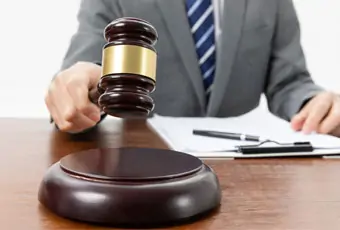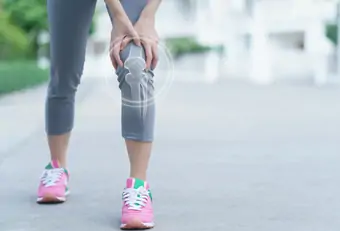Charlotte Slip and Fall Lawyer
Charlotte Slip and Fall Attorney
“Slip and fall” is the informal name given to the type of personal injury case involving accidents such as:
- Falling on ice
- Slipping on a wet floor
- Catching a toe on a loose floorboard
- Tripping on a broken sidewalk
Since most of us have slipped or tripped at some point, these incidents may sound trivial. However, slip and fall accidents can cause serious injuries, and may even be fatal. If you or a loved one has been injured in a slip and fall accident, it’s important to seek legal advice from a Charlotte personal injury lawyer to understand your rights and options for compensation.
Sobering Statistics about Slips, Trips, and Falls in Charlotte
According to the Center for Disease Control (CDC), slip and fall injuries send more than one million Americans to emergency rooms each year. While many of those injuries are minor, 20-30% of slip and fall incidents result in moderate to severe injuries. Falls, including slip and fall incidents, are the most common cause of traumatic brain injury (TBI) in the United States.
Workplace Slip and Fall Injuries in Charlotte
U.S. Department of Labor (DOL) data shows that most general industry accidents involve slips, trips and falls, with more than 17% of disabling workplace injuries result from falls. Fatalities are common as well. The Occupational Safety & Health Administration (OSHA) reports that falls cause 15% of accidental deaths, second only to motor vehicle accidents.
While some of these injuries involve falling from ladders, platforms and similar equipment, about 2/3 of fall-related injuries involve same-level falls.
According to the National Institute for Occupational Safety and Health (NIOSH) at the CDC, the most common causes of workplace falls include:
- Contaminants on the Floor
- Walking Surface Irregularities
- Weather Conditions
- Inadequate Lighting
- Stairs and Handrails
- Stepstools and Ladders
- Tripping Hazards
- Improper Use of Floor Mats and Runners
- Poor Drainage
As this list suggests, most workplace falls are avoidable. Workplace slip and fall injuries are often attributable to negligence on the part of the employer.
Older Americans are More Likely to Suffer Slip and Fall Injuries
Although slip and fall injuries can happen to anyone, older Americans are more vulnerable to this type of accident. Slip and fall accidents are the leading cause of occupational injury for people aged 55 and older. The risk to older people is greater outside the workplace as well:
- About 30% of those 65 and older fall each year, and about 10% of those sustain serious injuries
- 1.8 million people over the age of 65 are treated in emergency rooms each year as the result of falls
- Falls trigger about 40% of all nursing home admissions
- The fatality rate for people aged 65 and older due to falls has been climbing steadily for the past decade
Serious Slip and Fall Injuries Can Happen to Anyone in Charlotte
While certain populations are more at risk for slip and fall injuries, this type of accident can happen to anyone, virtually anywhere in Charlotte, NC. Famed diet doctor Robert Atkins died of a head injury sustained when he slipped on the ice while walking to work.
More recently, former NFL player Keion Cole suffered a fatal blow to the head when he slipped while running to the car with his son during a Florida vacation.
Some of the most common locations for slip and fall injuries include:
- Icy parking lots and sidewalks
- Warehouse and factory floors
- The aisles of retail stores
- Swimming pools and gymnasiums
- Public restrooms
- Construction sites
- Stairs and escalators
Liability for Slip and Fall Injuries in Charlotte
When a slip and fall injury is caused by the negligence of a third party—for example, a business that fails to maintain its premises in a safe condition for shoppers—the injured party may be entitled to compensation.
The most common means of securing compensation is a personal injury case, but under some circumstances, other remedies may be available. For example, a person injured in a slip and fall accident at work may opt to pursue a worker’s compensation claim.
To recover damages through a personal injury suit, the plaintiff must prove that:
- The defendant had a duty of care;
- The defendant breached that duty;
- The breach of the duty caused the accident or other harm; and
- The plaintiff suffered damages as a result
Duty of Care in Charlotte Slip and Fall Cases
In a premises liability case such as a slip and fall suit, the duty of care varies depending upon the reason the person was on the property. These distinctions vary from state to state. For example, in South Carolina, invitees (those whose presence on the property is invited by the defendant and in some way benefits the defendant) are entitled to the greatest protection.
Landowners and those in control of property are required to exercise “reasonable and ordinary care” for the safety of invitees, such as customers in a retail establishment. Licensees, such as social guests, do not enjoy the same protections.
North Carolina, on the other hand, treats all legal visitors to the property equally. Thus, a homeowner in North Carolina may owe a duty to his social visitors that a homeowner in South Carolina would not. A local personal injury attorney can explain the duty of care as it applies to a particular premises liability case.
Damages in Charlotte Slip and Fall Cases
The exact nature of the damages an injured person can recover in a slip and fall case will vary with the facts of the case. However, some of the most common settlements and awards include compensation for:
- Medical expenses
- Lost wages due to the injury
- Pain and suffering
Time Limits in Charlotte Slip and Fall Cases
In both North Carolina and South Carolina, a person injured in a slip and fall accident typically has three years in which to file a lawsuit. However, other important deadlines may apply, and there are good reasons not to delay moving your case forward.
Additional Deadlines in Charlotte Slip and Fall Cases
Under certain circumstances, much shorter time periods may impact the right of an injured party to recover for damages. For example, if a person suffers a slip and fall injury at work and plans to pursue a worker’s compensation claim, additional notice requirements may apply. For example, a South Carolina worker who sustains an injury or becomes aware of a work-related illness must report it to his or her employer within 90 days, though it is not necessary to file a claim within that time period.
Talking with a local personal injury attorney as soon as possible after the slip and fall accident will help ensure that you do not overlook important deadlines that could impact your case or even cut off your right to recovery altogether.
Building a Strong Personal Injury Case For Slip and Fall in Charlotte
Deadlines are critical, but they are not the only reason it is advantageous to seek legal advice as soon as possible after your injury. The further removed you are from the accident, the more difficult it may be to assemble the evidence necessary to build a strong slip and fall case.
Physical evidence may be altered or destroyed, either intentionally or in the ordinary course of business. Witnesses may be difficult to locate a year or two after the event, and their memories will become less clear and less reliable as time passes.
When you retain an experienced personal injury attorney immediately after your accident, the attorney has the best opportunity to gather evidence in support of your case and clearly establish your claim. That ability to build a thorough and compelling case will benefit you whether you ultimately settle the case or present your claim to a jury.
At the Tatum Law Firm, we offer a free initial consultation through which we can assess the merits of your case and the best course of action for your specific injuries. For further information or assistance, please do not hesitate to call us at 704-307-4350 or contact us online for a free case evaluation today.






